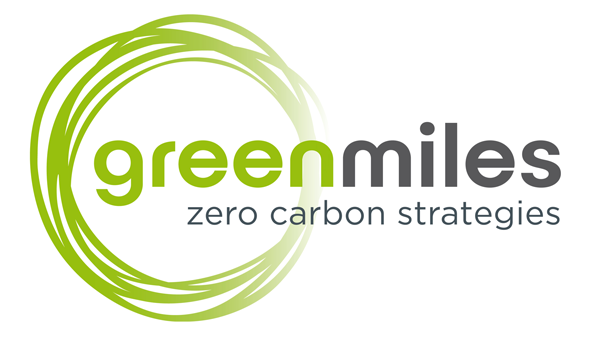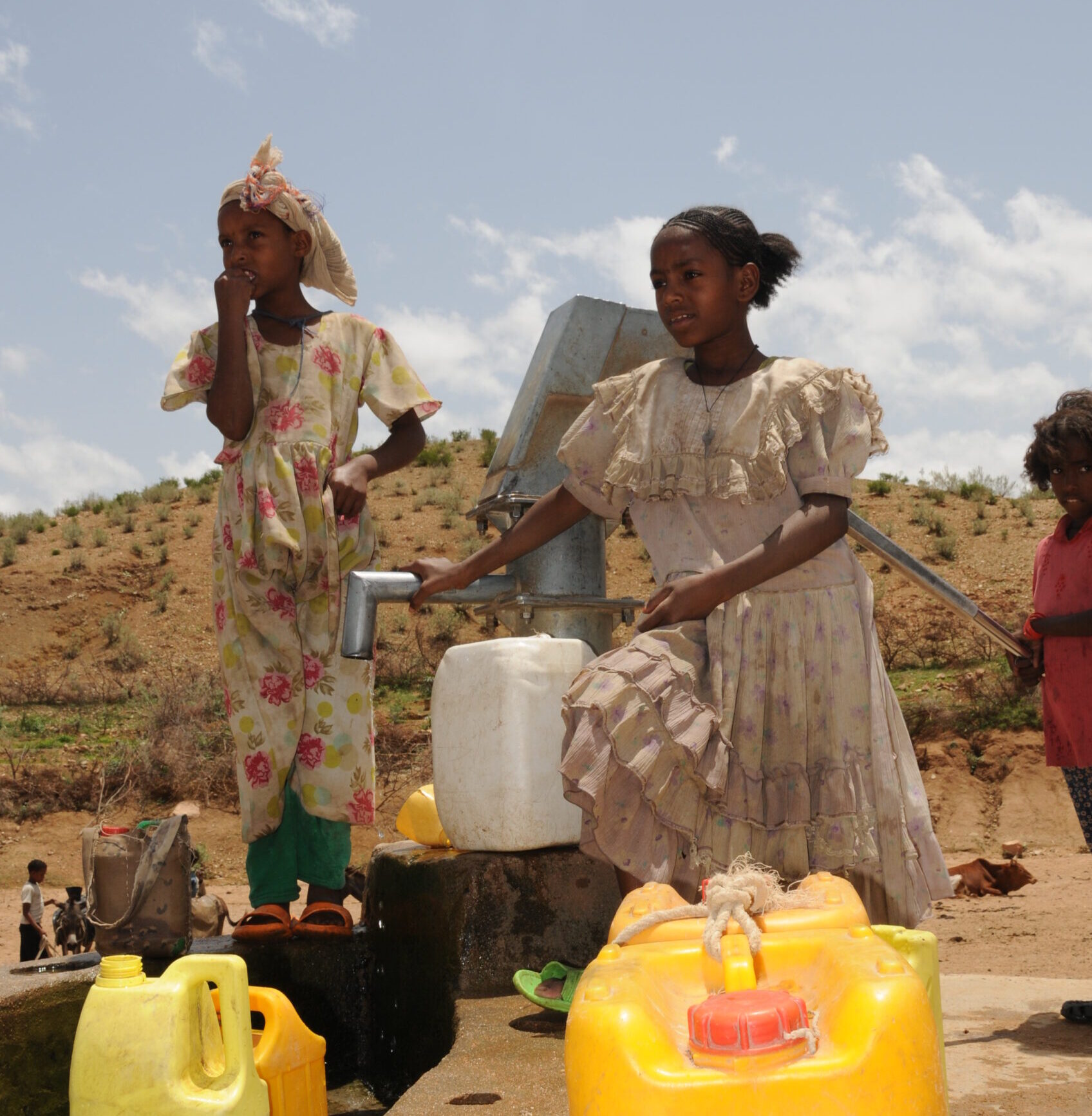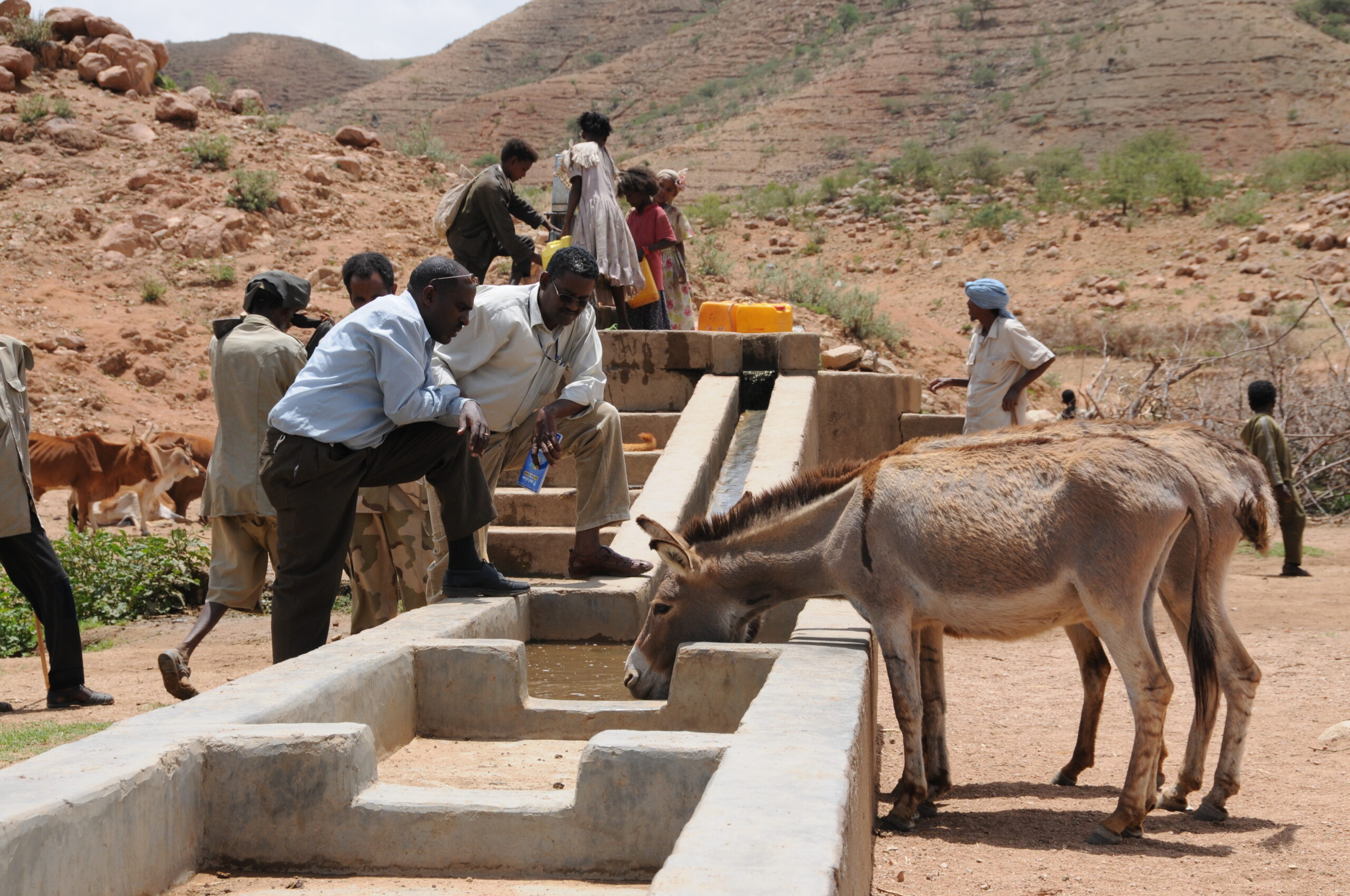Clean drinking water in Eritrea
The projects will support the provision of safe water using borehole technology to hundreds of households within the Zoba Anseba district in Eritrea. By providing safe water, the project will ensure that households consume less firewood during the process of water purification and as a result there shall be a reduction of carbon dioxide emissions from the combustion process. The Zoba Anseba District is a largely rural district where local people typically use wood fuel on inefficient three stone fires to purify their drinking, cleaning and washing water. This process results in the release of greenhouse gas emissions from the combustion of wood this can be avoided if a technology that does not require fuel (wood or fossil) supplies clean water desired by households.
Repair old wells and create new water sources
Many existing boreholes are owned by community groups or community based organizations (CBOs) and have fallen into disrepair because maintenance programmes have been poorly managed, or proven too expensive. In this project, the project developer will work with community groups in Zoba Anseba to identify broken down boreholes and renovate them so that they deliver clean, safe water and breakdowns are fixed rapidly. The boreholes included under the project will be entirely human operated and will be fitted with hand pump models that are commonly used in the area such as India Mark II pumps. The depth of the boreholes will be limited to 100m or less.
The Micro-Scale Community Safe Water Project contributes to the sustainable development of the project area in a number of ways:
Cooperation with local communities
Cooperation with the local communities ensures the long-term impact of the project and raises people’s awareness of their environment. In addition, the people are sensitized to health aspects through an educational program on hygiene and sanitation.
Environmental effects:
-
- The VPA will help significantly reduce greenhouse gas emissions over its lifetime
- The VPA will help reduce the use of non-renewable biomass from forests, assisting with the preservation of existing forest stock, protecting natural forest eco-systems and wildlife habitats
- The protection of standing forests will ensure the maintenance of watersheds that regulate water table levels and prevent flash flooding. A reduction in fire wood consumption will lead to reduced deforestation and therefore reduced erosion and nutrient loss
Positive social and economic co-benefits:
- The incidence of illness and disease caused by drinking dirty water will be reduced
- The amount of indoor pollutants from the burning of biomass in the family home will be reduced
- Less Carbon Dioxide (CO2), Carbon Monoxide (CO) and particulates will be emitted, reducing the likelihood of respiratory diseases and thus impacting positively on the health of the households
- Less time will need to be spent purifying water, allowing greater opportunity to focus on other household tasks and the supervision of children.
- The project will benefit the rural economy by providing employment in the maintenance and monitoring of the boreholes
- Costs incurred in the purchase of fuel will be reduced, allowing more money to be spent on food, health care, education etc.





